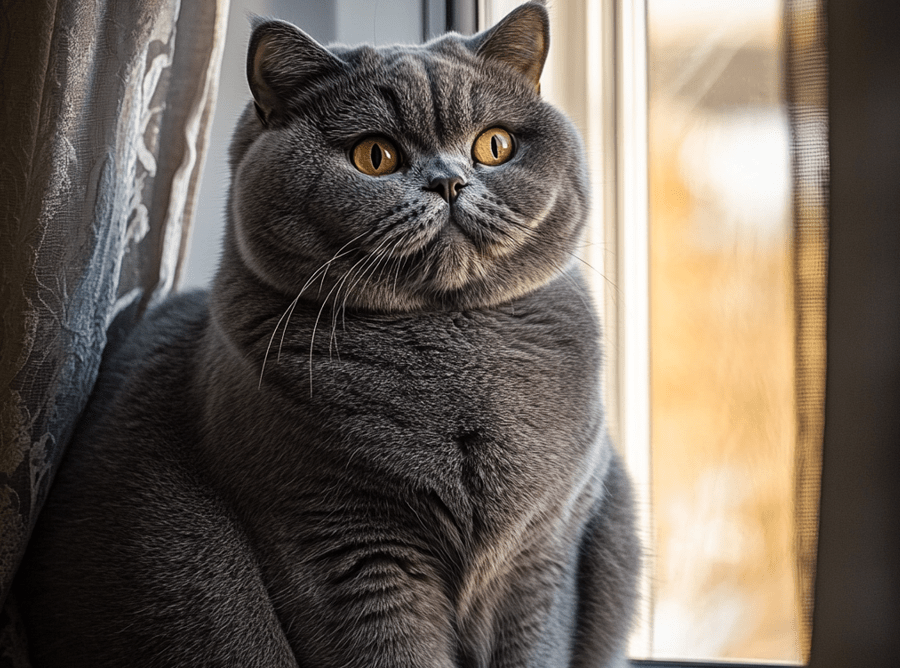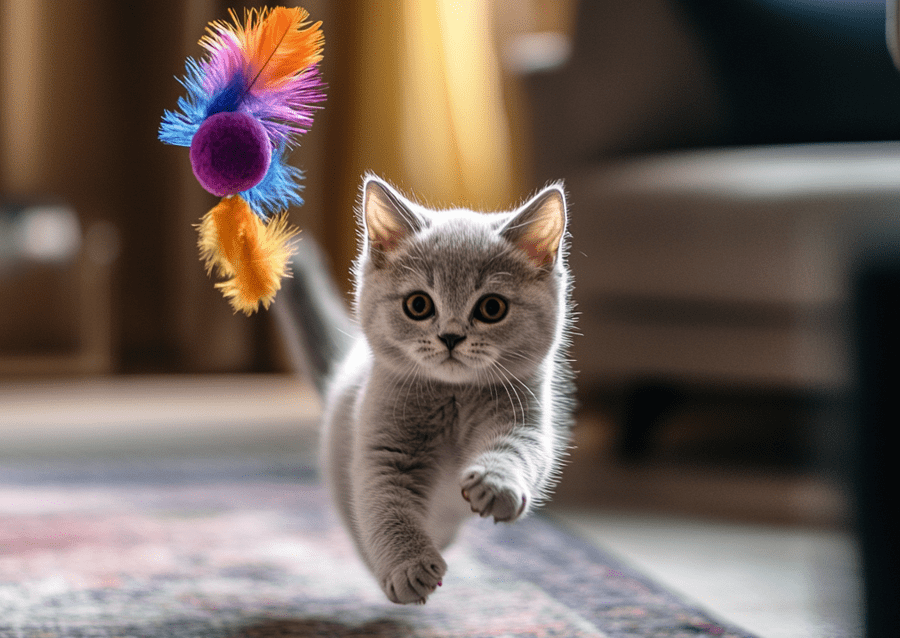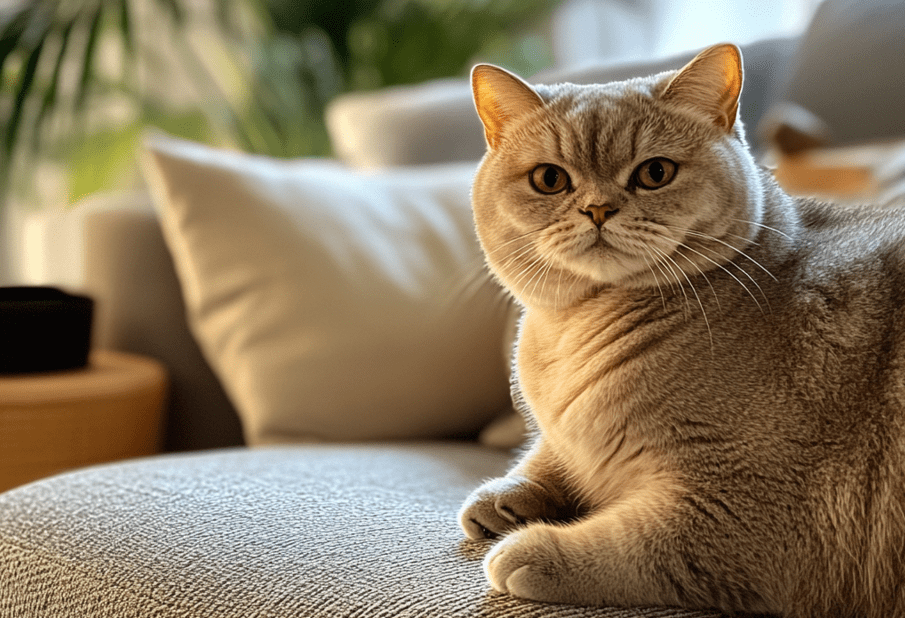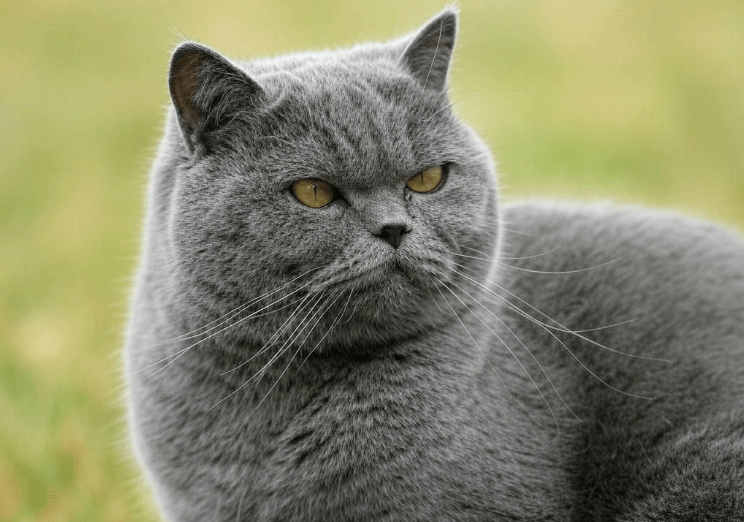
British Shorthairs are beloved for their plush coats, round faces, and calm personalities. However, these charming cats are prone to weight gain, which can lead to health issues like diabetes, arthritis, and heart disease. Finding healthy treats for British Shorthairs that satisfy their taste buds without packing on the pounds is essential for their well-being. This comprehensive guide explores nutritious treat options, portion control tips, and homemade recipes to keep your British Shorthair happy and healthy. By prioritizing low-calorie, high-quality treats, you can reward your feline friend while supporting their long-term health.
Why Healthy Treats Matter for British Shorthairs
British Shorthairs have a sturdy, muscular build, but their love for lounging and eating can quickly tip the scales. Obesity is a common concern for this breed, as their slower metabolism and relaxed nature make it easy to gain weight. Offering healthy treats for British Shorthairs helps maintain their ideal weight, supports joint health, and reduces the risk of obesity-related conditions. Treats should complement a balanced diet, providing nutrition without excessive calories.
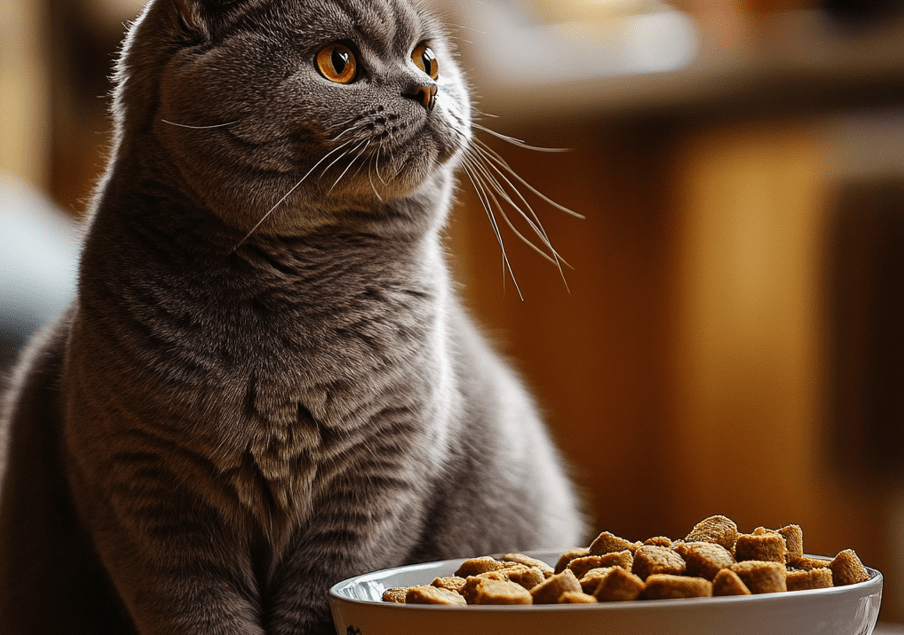
The Risks of Overfeeding Treats
Overfeeding treats, even healthy ones, can disrupt your cat’s diet. According to veterinary guidelines, treats should make up no more than 10% of a cat’s daily caloric intake. For a British Shorthair, this typically means 20–30 calories from treats per day, depending on their size and activity level. Excess calories from high-fat or sugary treats can lead to:
Weight gain: Extra pounds strain joints and organs.
Digestive issues: Rich treats may cause upset stomachs.
Nutritional imbalances: Too many treats can reduce appetite for balanced meals.
By choosing low-calorie, nutrient-rich treats, you can reward your British Shorthair without compromising their health.
Characteristics of Healthy Treats for British Shorthairs
When selecting treats, prioritize options that align with your cat’s nutritional needs. Here are key factors to consider:
1. Low-Calorie Content
Look for treats with fewer than 2–3 calories per piece. This allows you to give multiple treats without exceeding the daily limit. Many commercial treats list calorie content on the packaging, making it easier to choose wisely.
2. High-Quality Protein
British Shorthairs thrive on protein-rich diets. Treats made with real meat, such as chicken, turkey, or fish, provide essential amino acids for muscle maintenance and energy. Avoid treats with fillers like corn or soy, which offer little nutritional value.
3. Grain-Free or Limited Ingredients
Some British Shorthairs have food sensitivities. Grain-free or limited-ingredient treats reduce the risk of allergies and digestive upset. Always check for artificial additives, preservatives, or excessive salt, which can harm your cat’s health.
4. Dental Benefits
Treats designed to promote dental health, such as those with a crunchy texture, can help reduce plaque buildup. While not a substitute for regular brushing, these treats support oral hygiene.
5. Palatability
Even the healthiest treat is useless if your cat won’t eat it. British Shorthairs often prefer savory, meaty flavors. Experiment with different proteins to find your cat’s favorite.
Top Commercial Healthy Treats for British Shorthairs
Here are some vet-recommended, low-calorie treats that British Shorthairs love:
1. Greenies Feline Dental Treats
Calories: ~1.4 per treat
Key Ingredients: Chicken, wheat flour, natural flavors
Benefits: Cleans teeth, low in calories, highly palatable
Why It’s Great: These crunchy treats support dental health and come in flavors like salmon and tuna, appealing to picky eaters.
2. PureBites Freeze-Dried Chicken Breast Treats
Calories: ~2 per treat
Key Ingredients: 100% chicken breast
Benefits: Single-ingredient, grain-free, high in protein
Why It’s Great: With no additives, these treats are ideal for British Shorthairs with food sensitivities.
3. Wellness Kittles Grain-Free Treats
Calories: ~1.1 per treat
Key Ingredients: Chicken, cranberries, flaxseed
Benefits: Antioxidant-rich, low-calorie, no artificial additives
Why It’s Great: The inclusion of cranberries supports urinary health, a concern for some British Shorthairs.
4. Orijen Freeze-Dried Cat Treats
Calories: ~1 per treat
Key Ingredients: Free-run chicken, wild-caught fish
Benefits: Biologically appropriate, high-protein, grain-free
Why It’s Great: Mimics a cat’s natural diet, making it a nutritious choice.
When purchasing treats, always read labels and consult your veterinarian, especially if your British Shorthair has specific health conditions like diabetes or kidney disease.
Homemade Healthy Treats for British Shorthairs
Making your own treats gives you full control over ingredients and portion sizes. Here are two simple, vet-approved recipes that your British Shorthair will love.
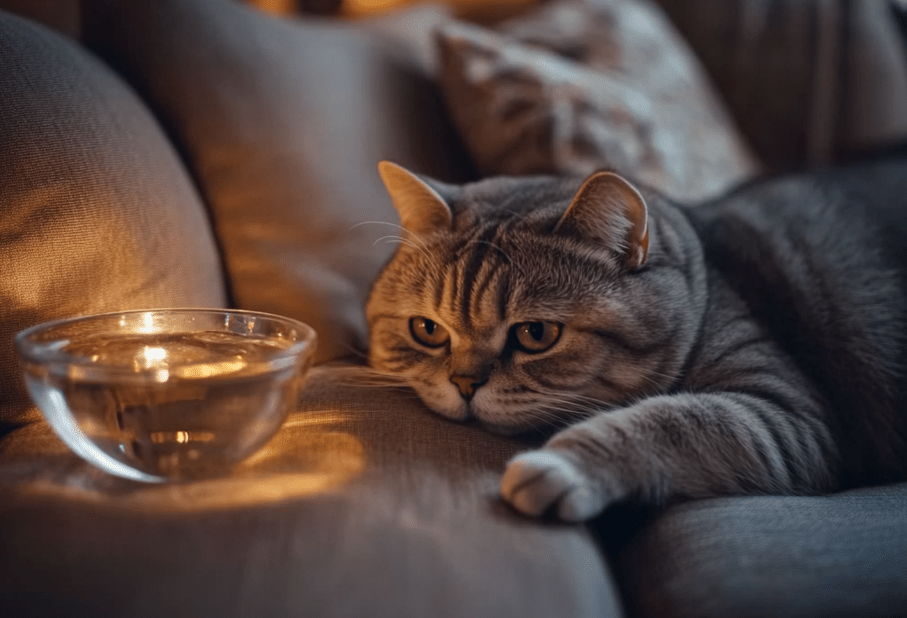
Recipe 1: Tuna Bites
Ingredients:
-
1 can (5 oz) tuna in water, drained
-
1 egg
-
1/2 cup oat flour
-
1 tbsp catnip (optional)
Instructions:
-
Preheat oven to 350°F (175°C).
-
Blend tuna, egg, and catnip in a food processor until smooth.
-
Add oat flour and mix into a dough.
-
Roll dough into small balls (about 1/2 inch) and place on a parchment-lined baking sheet.
-
Bake for 10–12 minutes until firm.
-
Cool completely before serving. Store in an airtight container in the fridge for up to 5 days.
Calories: ~1.5 per treat
Why It’s Healthy: High in protein, low in carbs, and free of artificial additives.
Recipe 2: Chicken and Pumpkin Cubes
Ingredients:
-
1 cup cooked, shredded chicken
-
1/4 cup pureed pumpkin (unsweetened)
-
1 egg
-
1/4 cup rice flour
Instructions:
-
Preheat oven to 325°F (160°C).
-
Mix chicken, pumpkin, and egg in a bowl.
-
Gradually add rice flour to form a thick batter.
-
Spread batter into a greased mini-muffin tin or shape into small cubes.
-
Bake for 15–20 minutes until set.
-
Let cool and cut into bite-sized pieces. Refrigerate for up to 7 days.
Calories: ~2 per treat
Why It’s Healthy: Pumpkin aids digestion, and chicken provides lean protein.
Tip: Always introduce new treats gradually to monitor for allergies or digestive issues.
How to Incorporate Treats into Your British Shorthair’s Diet
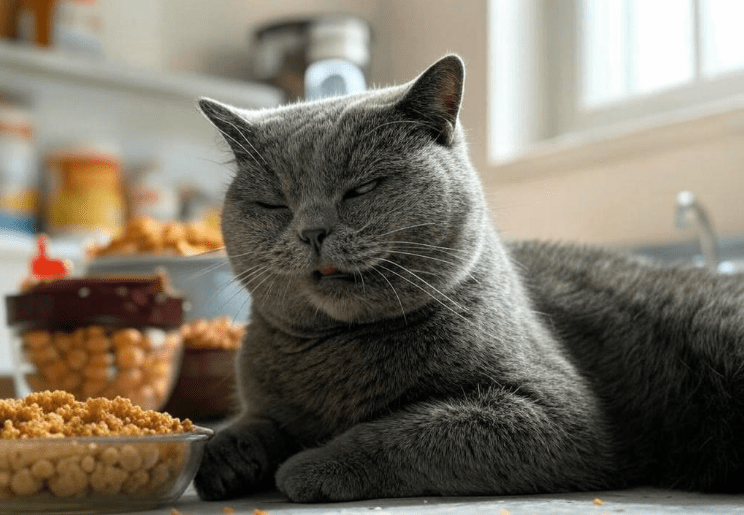
To prevent weight gain, follow these guidelines when giving treats:
1. Practice Portion Control
Measure treats daily to stay within the 10% calorie rule. For example, a 10-pound British Shorthair needs about 200–250 calories per day, so limit treats to 20–25 calories. Use a kitchen scale or calorie chart to track portions.
2. Use Treats Strategically
Reserve treats for training, bonding, or rewarding good behavior. For example, use treats to encourage playtime, which helps burn calories and keeps your cat active.
3. Balance with Regular Meals
Reduce the amount of kibble or wet food slightly on days when you give treats. This ensures your cat’s total calorie intake remains consistent.
4. Monitor Weight Regularly
Weigh your British Shorthair monthly to catch any weight gain early. If you notice a trend, consult your vet to adjust their diet or treat regimen.
5. Avoid Human Foods
Many human foods, like cheese or deli meats, are high in fat and salt, making them unsuitable for cats. Stick to cat-specific treats to avoid health risks.
The Role of Exercise in Weight Management
Treats alone won’t keep your British Shorthair at a healthy weight—exercise is equally important. British Shorthairs aren’t as naturally active as some breeds, so encourage movement with:
Interactive Toys: Feather wands, laser pointers, or ball tracks stimulate hunting instincts.
Puzzle Feeders: Use treat-dispensing toys to make your cat work for their rewards, combining mental stimulation with physical activity.
Play Sessions: Aim for 15–20 minutes of play twice daily to burn calories and improve agility.
Regular exercise paired with healthy treats for British Shorthairs creates a balanced lifestyle that prevents obesity.
Common Mistakes to Avoid When Choosing Treats
Even well-meaning owners can make mistakes when selecting treats. Here are pitfalls to watch out for:
1. Ignoring Calorie Content
High-calorie treats, even if marketed as “natural,” can contribute to weight gain. Always check the calorie count per serving.
2. Overlooking Ingredients
Treats with vague labels like “meat by-products” or “animal digest” may contain low-quality ingredients. Opt for treats with clear, whole-food ingredients.
3. Giving Treats Too Frequently
Frequent treating, especially during training, can add up. Break treats into smaller pieces to stretch them out.
4. Assuming All Cats Have the Same Needs
British Shorthairs with medical conditions, like urinary tract issues or diabetes, may require specialized treats. Consult your vet for tailored recommendations.
Conclusion
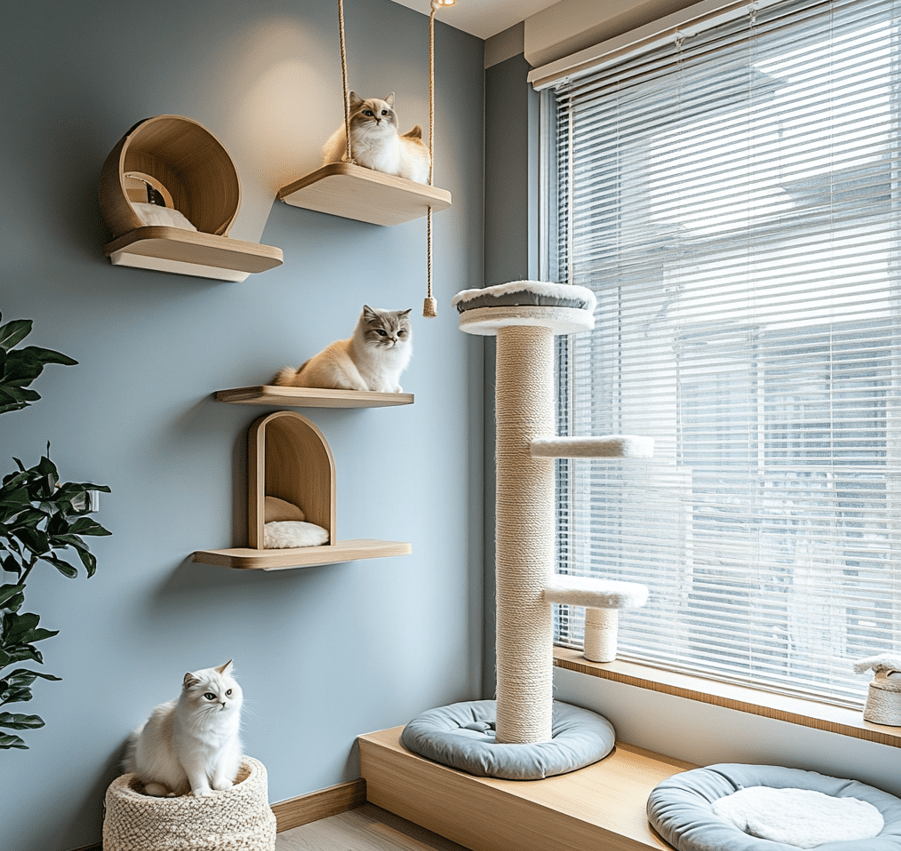
Keeping your British Shorthair at a healthy weight doesn’t mean sacrificing their love for treats. By choosing healthy treats for British Shorthairs, such as low-calorie, protein-rich options, you can reward your cat without risking obesity. Whether you opt for commercial treats like Greenies or homemade recipes like tuna bites, prioritize quality and portion control. Pair treats with regular exercise and a balanced diet to ensure your British Shorthair stays fit, happy, and healthy for years to come. Always consult your veterinarian for personalized advice, especially if your cat has specific health needs.

